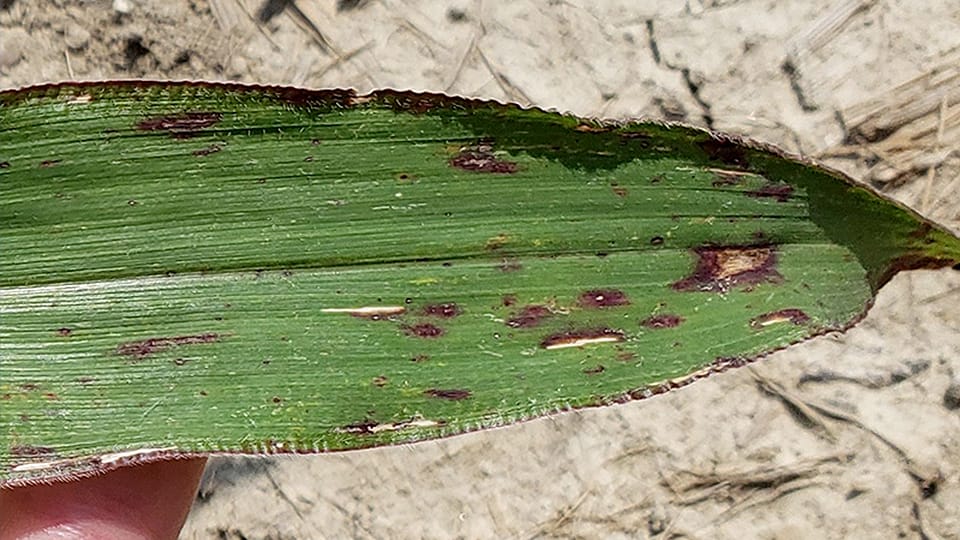Ag-tech startup lands key federal approval to accelerate testing
Subscriber Benefit
As a subscriber you can listen to articles at work, in the car, or while you work out. Subscribe Now
The U.S. Department of Agriculture has ruled that farmers can begin trials on genetically modified corn plants developed by an ag-tech startup in Hamilton County.
Atlanta-based Insignum AgTech had developed technology that involves gene editing in seeds that allows plants to change color to signal to farmers when certain stresses begin, such as disease or an insect attack.
The USDA’s Animal and Plant Health Inspection Service reviewed 12 plants modified with Insignum’s technology and ruled that the plants “were unlikely to pose an increased plant pest risk.”
Insignum AgTech CEO Kyle Mohler told Inside INdiana Business the ruling is huge for the company.
“Any type of new DNA technology needs to go through a regulatory process to make sure it’s safe before we grow it at scale in the environment,” Mohler said. “The USDA took a quick look at our technology, what we’re trying to build and didn’t require any additional information from us, so they were really happy with the safety of our crop.”
Mohler, a Purdue University graduate who founded the company in 2019, said the USDA ruling means they can now breed and test the plants in the field without any special permits or stipulations required.
The ruling opens the door for future commercialization of the technology. However, Mohler noted there is still much more testing that needs to be done.
“Whenever a seed company has a new product, they want to put that out in their fields for a few years in a lot of locations, so that they can get a good feel for how that is going to work in a real world scenario, where there’s different environmental conditions,” he said. “So you can’t just test for one single year and then go launch a product. Farmers want to make sure that there’s confidence in that product.”
Insignum plans to put its product out into the field next year for testing, then plans to bring on additional partners the following year.
“People can come and see our how the technology works at our site in 2024. Then they can go and start that testing process and 2025. And so when could a farmer start to purchase this? Well, we’re still looking at a few years down the road.”
Currently, Insignum’s gene editing technology allows corn plants to generate a purple pigment, which indicates that a fungal infection has started but might not yet be apparent. However, the company has plans to utilize other natural pigments for such as red or blue, which can give an indication of other issues, including insect pests or fertility loss.
“Farmers will gain the ability to sustainably and precisely treat when and where needed, ultimately increasing yields without arbitrarily increasing costly inputs,” Mohler said.
In April, Insignum inked an agreement with Beck’s Hybrids, also based in Atlanta, to begin testing the technology in Beck’s products. Mohler said that testing took place this year and saw great success.
“All of the varieties that we tested with Beck’s showed that our technology is working really well,” he said. “Beck’s was really happy about it, and so we’ve continued and expanded our testing again for 2024.”
Insignum has secured several investments since its inception, including a $100,000 investment from the Purdue Ag-Celerator in 2022, as well as an undisclosed pre-seed funding round earlier this year.
Mohler noted that 2023 has been a challenging year for fundraising, but the company has been able to close on more financing from new and current investors, though he did not provide a specific dollar amount.
“We’re still going ,and we are expanding our testing and our capabilities in-house.”
